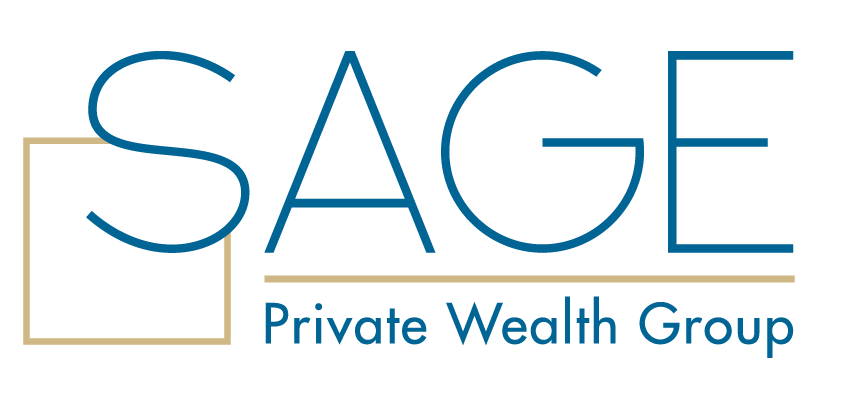By SAGE Private Wealth Group

Wealth is a function of how much you save rather than how much you make. Those who have income that exceeds their expenses, then save and invest the difference are setting themselves up on a path to successful wealth accumulation. The simplicity of this formula—spend less than I earn and save the difference—can lead to a more profound fundamental question that everyone has once asked themself: am I saving enough?
The Certified Financial Planner™ Board has a few general guidelines that can provide benchmarks to measure if you’re on the right track with your savings and expenses. It’s important to remember that it should be taken with a grain of salt with any general rule of thumb, as everyone’s path to financial wellness is different. Remember, personal finance is personal.
avings is what’s left over from how much you’ve spent in relation to your income. Rather than focusing on minor costs like how frequently we buy coffee or avocado toast, let’s start by focusing on the impact our largest expenditures have on our income: the cost of housing. Whether you buy or rent, housing is a fundamental basic human need. How much we spend on satisfying this need can significantly affect our ability to allocate resources to funding other important financial life goals. The following wealth accumulation formulas come from The Fundamentals of Financial Planning, 5th Edition, by Michael A Dalton, James F. Dalton, Joseph M. Gilice, and Thomas P. Langdon. The first formula to keep in mind when considering your housing expense is:
Annual Housing Costs / Gross Income ≤ 28%
Annual housing costs include mortgage or rent payment, homeowners insurance, HOA fees, property taxes, any expense related to the domicile in which you live. You should aim to keep annual housing costs less than 28% of whatever your gross income is¹. This is important to keep in mind when shopping for a first home or moving to a new apartment to rent. Zillow tracked that the value of a typical US Home dramatically increased compared to the median income of a US full time worker². Potential new homeowners should consider how much of their gross income will be dedicated to satisfying a potential new mortgage.
After home expenses, the most significant expenditures for many individuals and couples are consumer debts. Consumer debt can include credit card payments, monthly car payments, and student loans. Therefore, the second ratio to keep in mind is:
(Annual Housing Costs + Annual Consumer Debt Payments) / Gross Income ≤ 36%
The amount of your annual gross income devoted to fixed expenses like housing costs and consumer debt should be no more than 36% (Dalton, Dalton, Gilice, & Langdon, 2015). In addition, federal student loan repayment plans are set to begin again in May. Keep in mind the impact these resumed payments could have coupled with any new housing costs you may have added to your financial situation in the last year. This will greatly impact how much you can afford to save. The fundamental question behind this article is am I saving enough? While everyone’s financial life plan will be unique and applicable only to themselves, there is an excellent benchmark to measure if you are on the right track with your saving. Below is a table that outlines a benchmark for investment assets as a ratio of gross pay by age (Dalton, Dalton, Gilice, & Langdon, 2015):
| Age | Investment Assets as a Ratio of Gross Pay |
|---|---|
| 25 | 0.2 : 1 (20% of Gross Pay) |
| 30 | 0.6 – 0.8 : 1 (60-80% of Gross Pay) |
| 35 | 1.6 – 1.8 : 1 (160-180% of Gross Pay) |
| 45 | 3 – 4 : 1 |
| 55 | 8 – 10 : 1 |
| 65 | 16 – 20 : 1 |
A savings rate of 10-13% of gross pay, if started early enough, should make these benchmarks very achievable. The idea of paying yourself first means you’re treating your commitment to saving like a necessary expense. By making sure that major expenses like housing or other debt payments are within the reasonable means of your gross income, then you should be able to dedicate the necessary amount to building your nest egg.
Accumulating wealth includes managing expenses so that you can invest the difference between what you earn and what you spend. You have infinitely more control over how much you’ll spend than how your investments will perform. Find a Wealth Advisor that can work with you to determine how these ratios impact your current financial situation or how they will change based on any upcoming goals you are hoping to achieve. Equally important is finding the Wealth Advisor where your relationship is built on an understanding of investment of time, understanding and trust.
If you’ve ever asked yourself, “am I saving enough?” now is a great time to reach out to Wealth Advisor to provide you with the necessary guidance to answer that question.





